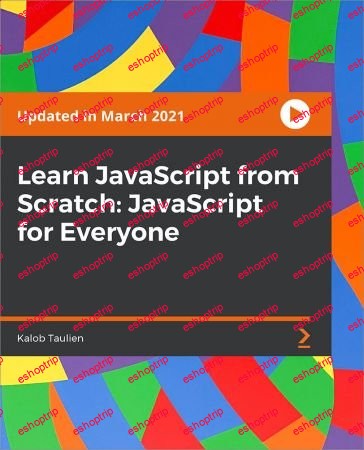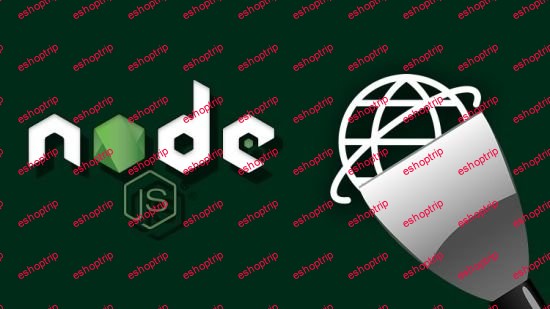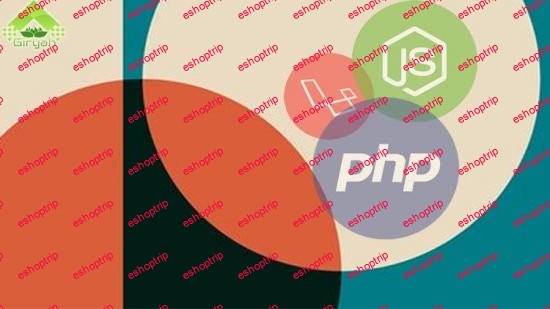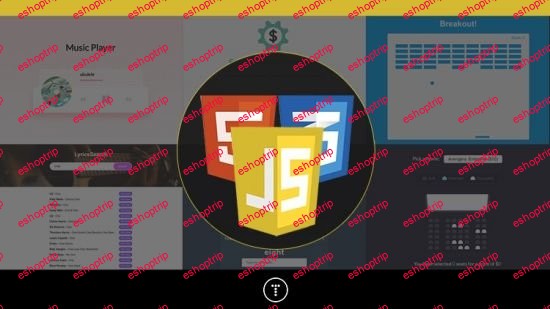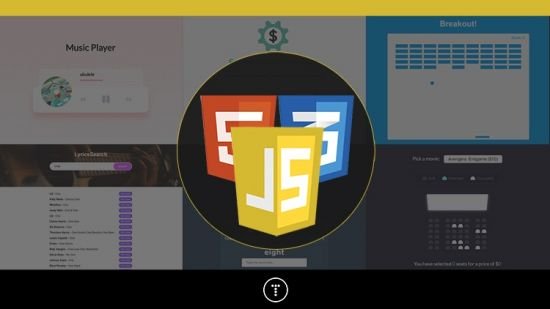- Business
- Esoteric
- Fitness & Gym
- Health
- Hypnosis
- Management
- Marketing & Selling
- Massage – SPA
- Parenting
- PUA Seduction
- Science
- Self Improvement
- Art
- Investing
- Painting & Skulping
- Tai Chi & Martial Arts
- Qigong
- Taoism
- Design & Graphics
- Medicine
- Exams
- Spirituality & Religion
- Hobbies & Fixing & Woodworking
- Photography & Film Making
- Networking & Lan
- Forex & Trading
- IQ & Memory
- Vision & Eye Care
- Swimming & Scuba diving & Water Sports
- Security & Hacking
- Travel
- Cooking
- Driving & Flighting
- Languages
- Computers & Programming
- Building & Home Improvement
- Music
- Astronomy
- History
- Mathematics
- Philosophy
- Literature & Writing
- Economics & Finance
- Sewing
- Hunting
- Electronics
- Psychology & Psychiatry
-75%
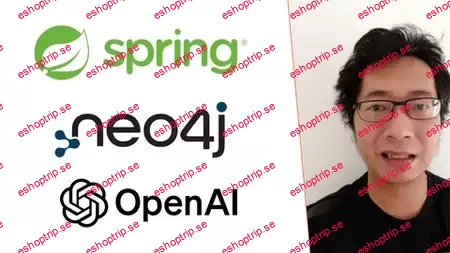
Java Spring AI, Neo4J, and OpenAI for Knowledge Graph RAG
$20.00 Original price was: $20.00.$5.00Current price is: $5.00.

Kitchen Herbalism
$20.00 Original price was: $20.00.$5.00Current price is: $5.00.
Javascript Insights: Visualizing Var, Let, And Const In 2024
$20.00 Original price was: $20.00.$5.00Current price is: $5.00.
SKU:
eshoptrip.se_GHIU19Y53H
Category: JavaScript
Description
Published 11/2024
MP4 | Video: h264, 1920×1080 | Audio: AAC, 44.1 KHz
Language: English | Size: 2.95 GB | Duration: 5h 34m
Visualize advanced concepts related to VAR, LET, CONST and EXECUTON CONTEXT for all serious JavaScript developers!
What you’ll learn
Understand VAR, LET, CONST at its fundamental and technical level
Visualize the execution context and the call stack
Understand the difference between immutable bindings vs immutable assignments
Understand advanced concepts around block scoping, function objects and internal slots
Understand hoisting, binding and memory allocation for VAR LET and CONST
Learn why LET and CONST were introduced to replace VAR
Master advanced concepts like environments, declarative records, components, slots, and more!
Understand the Temporal Dead Zone (TDZ), and how to deal with it
Compare JavaScript variable scopes to other languages like C, Java, Bash etc
Be able to choose the appropriate keyword based on context
Grasp memory management and bindings related to LET, CONST and VAR
Understand the concept of variable reassignment and redeclaration
Understand Lexical Scoping versus Dynamic Scoping
Was VAR ever broken?
Should you ever use VAR today (the answer may surprise you)
And a whole bunch more!
Requirements
A little understanding of JavaScript will be helpful
Mac or PC, so you can code alongside with me
Description
Master JavaScript’s Reserved Keywords: VAR, LET, and CONSTUnlock the secrets of JavaScript’s most essential reserved keywords VAR, LET and CONSTJoin an action-packed journey into the heart of JavaScript Master VAR,LET, and CONST— the trio that shapes how we declare and manage variables in our code!Go beyond the basics to uncover the intricate workings of these keywords. Few developers grasp their full potential, and even fewer understand how they operate under the hood. Understand global scope, local scope, blocks and function execution contexts and how to use variables in these scenariosBy the end of this course, you’ll not only master the syntax but also gain a profound understanding of how these keywords interact with memory, execution contexts, and environment records.WHY DO YOU NEED TO MASTER VAR LET AND CONST?Understanding VAR, LET, and CONST keywords is essential for any serious JavaScript developer because these keywords fundamentally shape how variables behave in your code. Understanding their differences in scope, hoisting, and mutability helps prevent common pitfalls. With VAR being function-scoped and prone to hoisting issues, while LET and CONST offer block-scoping and “partial-immutability” (with CONST), developers can write cleaner, more predictable code. Additionally, knowing how these keywords interact with memory management and execution contexts allows developers to optimize performance and maintainability in their applications.WHAT YOU WILL LEARN:Fundamentals of VAR, LET, and CONST: Delve into the core principles that govern these keywords and how they differ in functionality.Fundamentals of BLOCK and FUNCTION scope: Delve into the technical logic and contexts that are created whenever the JS engine evaluates variables inside of a block or function.Advanced Concepts: Gain insights into declarative records, components, slots, and more as you explore advanced topics that every JavaScript developer should know. Part of this advanced learning is understanding the difference between immutable bindings vs immutable assignments, which is extremely important when using the CONST keyword.Execution Contexts & Call Stack Visualization: Visualize how JavaScript executes your code and how variable bindings are created in different contexts.Hoisting, Binding, and Memory Allocation: Master the concepts of hoisting and binding, and learn how memory is allocated for each keyword.The Evolution of JavaScript: Discover why LET and CONST were introduced to replace VAR and what this means for modern development practices.Temporal Dead Zone (TDZ): Understand this critical concept and learn strategies for effectively managing it in your code.Comparative Analysis: Compare JavaScript variable scopes with other programming languages like C, Java, and Bash to enhance your understanding of scope management.Contextual Keyword Selection: Develop the skills to choose the appropriate keyword based on specific coding scenarios.Memory Management & Bindings: Grasp how memory management works in relation to LET, CONST, and VAR to write more efficient code.Variable Reassignment & Redeclaration: Understand the nuances of variable reassignment and redeclaration in JavaScript depending on whether you’re using CONST, LET or VARLexical vs. Dynamic Scoping: Explore these two scoping types to deepen your understanding of variable accessibility.Historical Insight: Was VAR ever broken? Dive into its past to understand its limitations and how they shaped modern JavaScript.AND MORE!COURSE FEATURES: This course is designed to be interactive and engaging! Each section is packed with coding exercises that reinforce your learning. You’ll also find quizzes at the end of each section to test your knowledge, a comprehensive final exam to challenge your skills, and a hands-on assignment that puts your newfound expertise into practice.Join this course to start an exciting adventure as we demystify JavaScript’s reserved keywords! Whether you’re a beginner looking to solidify your foundation or an experienced developer eager to deepen your understanding, this course will equip you with the knowledge and skills needed to excel in JavaScript development. WHY THIS COURSE STANDS OUTThis isn’t just another course; it’s a transformative experience that will make you an indispensable asset on any development team. Most developers use VAR, LET, and CONST without fully understanding them—become one of the few who do!Let’s get coding!
Overview
Section 1: Introduction
Lecture 1 Intro to variables, execution context, temporal dead zones, scope and more
Lecture 2 Temporal dead zone
Lecture 3 History of VAR, LET and CONST
Lecture 4 The 3 stages of a variable’s life, and the MILLION DOLLAR QUESTION
Lecture 5 Reasons why JS distinguishes between variable declarations vs initializations
Lecture 6 Variable hoisting
Lecture 7 Using “debugger” to examine scope of functions and variables
Lecture 8 Why is VAR initialized with the value of “undefined” ?
Lecture 9 VAR allows re-assignment and re-declaration, and some problems with VAR
Lecture 10 LET allows reassignment but not redeclaration
Lecture 11 CONST prohibits reassignment, but does not enforce immutability
Lecture 12 Scope intro
Lecture 13 Global Scope – VAR, LET and CONST are all global scoped. VAR goes further.
Lecture 14 Why adding properties to the global object is generally not a good idea
Lecture 15 Function Scope – VAR, LET and CONST
Lecture 16 Comparing C and JavaScript function scope with VAR
Lecture 17 Module Scope – VAR, LET and CONST are all confined to modules
Lecture 18 Block Scope – LET and CONST are blocked scoped
Lecture 19 VAR hacks, IIFEs, and “use strict”
Lecture 20 VAR is not blocked scoped
Lecture 21 Nested scopes and shadowing
Lecture 22 Temporal Dead Zone – why was it created?
Lecture 23 What does “temporal” mean in “temporal dead zone”?
Lecture 24 Example – identifying overall scope
Lecture 25 Example – identifying variable scope
Lecture 26 Example – global execution context and the call stack
Lecture 27 Example – function execution context and the call stack
Lecture 28 Example – block scope and final words
Section 2: JavaScript’s Execution Context – Creation Phase
Lecture 29 Does the JavaScript engine move your code around?
Lecture 30 Intro to VAR, and Execution Contexts
Lecture 31 What you are about to learn is very practical (and advanced)
Lecture 32 What is an Execution Context (phases, and types)?
Lecture 33 Intro to the Realm Record
Lecture 34 The 3 most important fields that the Realm Record creates
Lecture 35 The[[Intrinsics]] field
Lecture 36 The[[GlobalObject]] field
Lecture 37 What are Environment Records
Lecture 38 The[[GlobalEnv]] field
Lecture 39 Global Variable Recap
Lecture 40 The[[VarNames]] field, and recap
Lecture 41 Lexical and Variable Environment
Lecture 42 Basic example with a blank app.js file
Lecture 43 Example – setting up the Global Execution Context
Lecture 44 Example – assigning the global variables and function to the correct fields
Lecture 45 Function Object Intro
Section 3: JavaScript’s Execution Context – Execution Phase
Lecture 46 Execution phase and the call stack
Lecture 47 Example execution – part 1
Lecture 48 Function execution context – how it works under the hood
Lecture 49 Example execution – part 2
Lecture 50 Quasi code walkthrough from a developer’s perspective
Section 4: VAR, LET, CONST and BLOCKS
Lecture 51 VAR definition as per ECMAScript
Lecture 52 LET definition as per ECMAScript
Lecture 53 What happens if you try and redeclare a LET variable
Lecture 54 BLOCK definition as per ECMAScript
Lecture 55 BLOCK example
Lecture 56 Final example to drive the point home
Section 5: Lexical vs Dynamic Scoping
Lecture 57 Introduction to scoping in JavaScript (with an example)
Lecture 58 Lexical Scoping vs Dynamic Scoping with Bash example
Section 6: Outro
Lecture 59 CONST variables and immutability
Lecture 60 Using CONST with Object.freeze() to ensure true immutability
Lecture 61 Use cases for VAR
Lecture 62 Outro
Beginner to intermediate JavaScript developers,Web developers looking to enhance their JavaScript skills,Anyone interested in modern JavaScript best practices
Homepage
https://anonymz.com/?https://www.udemy.com/course/javascript-var-let-const/
Shipping & Delivery
DIGITAL DELIVERY ONLY
This is digital product THE DOWNLOAD LINK SEND 12-24 HOURS AFTER UPON PURSUASE AND PAYMENT CLEARS"
- The digital files are uploaded on PCLOUD
- 12-24 hours delivery time
- the download links expire after 7 days and need to download them
- to renew the download link after expiration have one additional fee $5 per product
REQUESTS
Also we accept requests (in this page) and course exchanges
In Course exchanges we are sending credits only
The credits will be the same price as we can sell course
"REFUNDS & RETURNS"
No Refunds on digital product
ONLY EXCHANGE
- Because of the abuse of the refunds from many customers i don't accept refunds
- We accept only 1 time exchange with product of the same price
- if you done mistake on the exchangeable product i don't recognize it as your mistake
- Exchanges only 3 days after the payment of your digital product. (if abused again i will do it 1 day)
Related products
Flappy Bird – Full FREE Course HTML, CSS3 and ES6 JavaScript
$5.00
Master Mysql, Javascript, Laravel 5.8 and e-commerce project
$5.00
Udemy – 20 Web Projects With Vanilla JavaScript
$5.00
JavaScript for absolute beginners 2020
$5.00
React Native – The Practical Guide 2020
$20.00
20 Web Projects With Vanilla JavaScript
$5.00

